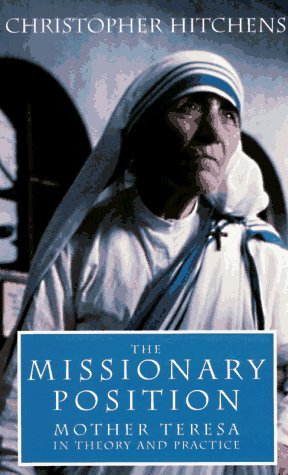
Since the new Pope doesn’t want us having a rough go at his faith or his mother, now seems like a good time to remind everyone of how Christopher Hitchens regularly took a rhetorical brickbat to the reputation of Catholicism’s favorite maternal figure: Mother Teresa. You could say that he wrote the book on why there is such a yawning chasm between who people believe that she was and who she really was. (And you should say that, to everyone who cares to know.)
The Missionary Position makes a sustained case that the religious order Teresa founded is far more concerned with spreading its own brand and its Catholic doctrine than with actually alleviating the suffering of those under their care. Hitchens taps several firsthand sources to make his case, including former Missionaries of Charity sister Susan Shields, one of the first apostate whistleblowers. In a brief column at Slate, on the occasion of Teresa’s beatification, Hitchens summed up his case succinctly:
[Mother Teresa] was not a friend of the poor. She was a friend of poverty. She said that suffering was a gift from God. She spent her life opposing the only known cure for poverty, which is the empowerment of women and the emancipation of them from a livestock version of compulsory reproduction. And she was a friend to the worst of the rich, taking misappropriated money from the atrocious Duvalier family in Haiti (whose rule she praised in return) and from Charles Keating of the Lincoln Savings and Loan. Where did that money, and all the other donations, go? The primitive hospice in Calcutta was as run down when she died as it always had been—she preferred California clinics when she got sick herself—and her order always refused to publish any audit. But we have her own claim that she opened 500 convents in more than a hundred countries, all bearing the name of her own order.
There are plenty of Catholic people doing good charity work, but we Humanists should understand that death with dignity requires expert palliative care coupled with the right to die, rather than bare austerity, minimal medical treatment, and the opportunity to partake in the sanctification of excruciating suffering.
